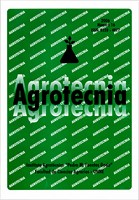Contribution to rural producers’ territorial development from “Cambio Rural” program by INTA Colonia Benitez
DOI:
https://doi.org/10.30972/agr.0304659Keywords:
Associativism, Intervention, Territorial development, Workgroup MethodologyAbstract
The “Cambio Rural” Program from the Argentine Ministry of Livestock, Agriculture and Fisheries is a tool for rural extension and territorial intervention that promotes productive and socioeconomic improvement of small and medium-sized rural producers, being Nacional Institute of Agricultural Technology (INTA) in charge of coordination and budget execution. The aim of this work is to analyze the results obtained by groups of producers working with Colonia Benítez Agricultural Experiment Station (EEA) INTA, from February 2018 to March 2020. The implemented strategy among the groups is associativism along with workgroup methodology and professional technical assistance. In this sense, the group method is based on: monthly meetings, the group workplans, individual development plans, individual visits to the lots. Most of the producers from the groups reinforced their strengths, agreed to detect the weaknesses in their activities, introduced their problems and opportunities, fostered associated work and took advantage from the assistance provided by the Counselor, the Project Officer and Colonia Benítez INTA technical extension and investigation team. Common achievements were installed through associativism through which technologies adapted to each activity were incorporated, products and services were commercialized, costs were reduced, and value was added to new products, services and processes. Another point achieved is the institutional and inter-institutional connection that allowed articulating actions at local, provincial and national levels; both with private and governmental organizations.Downloads
Published
2020-12-21
How to Cite
Rusas, V. A., Vagabculov, J. R., Rosello, J. E., Sáez, R. A., Gómez, V. D., Geijo, R. A., & Ondo Misi, S. G. (2020). Contribution to rural producers’ territorial development from “Cambio Rural” program by INTA Colonia Benitez. Agrotecnia, (30), 74–83. https://doi.org/10.30972/agr.0304659
Issue
Section
Trabajos de extensión



